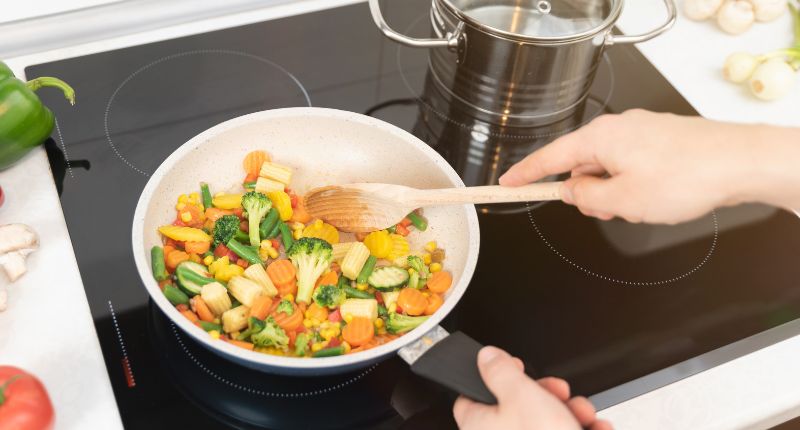- Experts urge Australians to switch to electric appliances
- Electric appliances more efficient and cheaper to run
- Offers a lower carbon footprint and improved air quality
Last September, the Australian parliament passed a bill to reduce emissions by 43% and reach net zero by 2050. Much of the government’s plan to reduce emissions relies on technological advancements in green energy, investing heavily in technologies like solar power, hydrogen fuel, battery storage and carbon capture.
Sustainability has already become a feature in the lives of everyday Australians. Investors have been flocking towards green buildings, while the owners of older, inefficient buildings retrofit their stock to catch up.
Electric cars are projected to become the norm, with governments investing substantial amounts into improving electric vehicle infrastructure and property developers installing electric vehicle charging stations in newly built apartments.
Recently, another environmentally ‘unfriendly’ technology has come under the spotlight— gas appliances.
Health experts call for more urgency
Two weeks ago, members of the Royal Australian College of General Practitioners, Australasian College for Emergency Medicine and Australian Federation of Medical Women met with the Victorian Minister for Climate Action, Lily D’Ambrosio, to discuss further support in helping Australians to make the switch from gas to renewable electricity.
“Gas burning in homes can trigger asthma and can risk poisoning with carbon monoxide,” says Dr Aadhil Aziz, Co-Deputy Victorian Chair of the Royal Australian College of General Practitioners.
“The Victorian government must assist households to switch from gas to renewable electricity as fast as possible.”
“Electric appliances are cleaner, healthier and cheaper to run than gas ones, so switching is a win-win-win for Victorians,” says Associate Professor Magdalena Simonis, President of the Australian Federation of Medical Women.
Cost savings
Generally, electric appliances are more efficient than gas appliances and, therefore, require less energy. While some may be hesitant to switch due to the high costs of changing all of one’s appliances to electric alternatives, the savings from paying lower energy bills may pay off in the long run.
According to a report published by the climate council late in 2022, Australian homeowners can save anywhere from $500 to $1900 annually by making the switch. This means the expenses incurred from making the change can be recouped as quickly as within five years.
Lower carbon footprint and better air
Directly operating electric appliances in one’s household produces little to no carbon emissions. One important caveat is that the electricity supplying power to the appliances will not be fully ‘green’ unless generated from renewable sources like solar panels, as 71% of Australia’s electricity generation still comes from fossil fuels like coal, gas, and oil.
By being more efficient, switching to electric appliances may inadvertently reduce the demand for natural gases.
Additionally, new research from the United States, published in the journal, Environmental Science and Technology, has revealed that methane gases released from gas-powered stove tops have released significant amounts of methane.
Gas leaks from 40 million homes are estimated to be equivalent to the emissions of 50,000 cars. Thus, delaying the switch will not only be at the expense of the environment and one’s wallet but also of one’s health.
“Pollution from gas burning in homes can trigger asthma symptoms in children and adults and can cause dangerous carbon monoxide poisoning. Gas stoves have been estimated to account for 12% of the childhood asthma burden in Australia, and a child living with a gas stove has a similar increased risk of asthma to a child living with secondhand cigarette smoke. Gas appliances can also leak carbon monoxide which can cause illness, disability and death. Australians should switch away from gas appliances to safer electrical alternatives, and governments should support them to do this.”
Dr Harry Jennens, Co-ordinator, Healthy Futures








